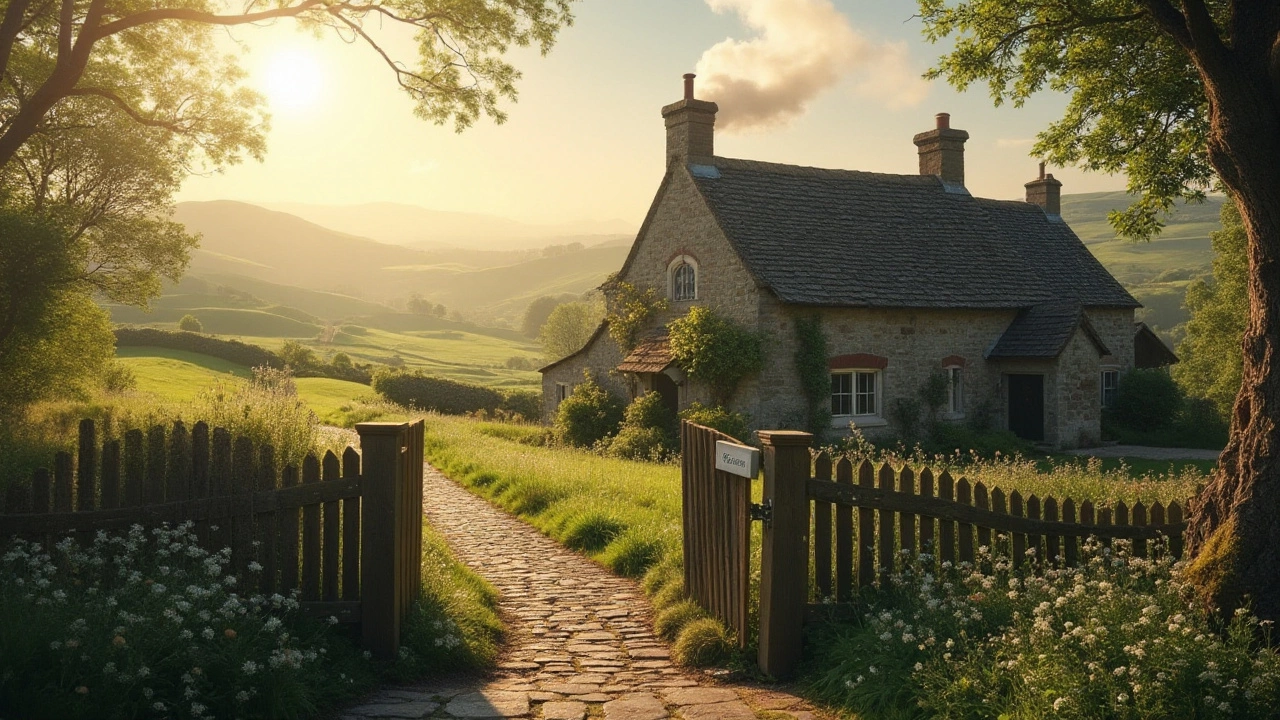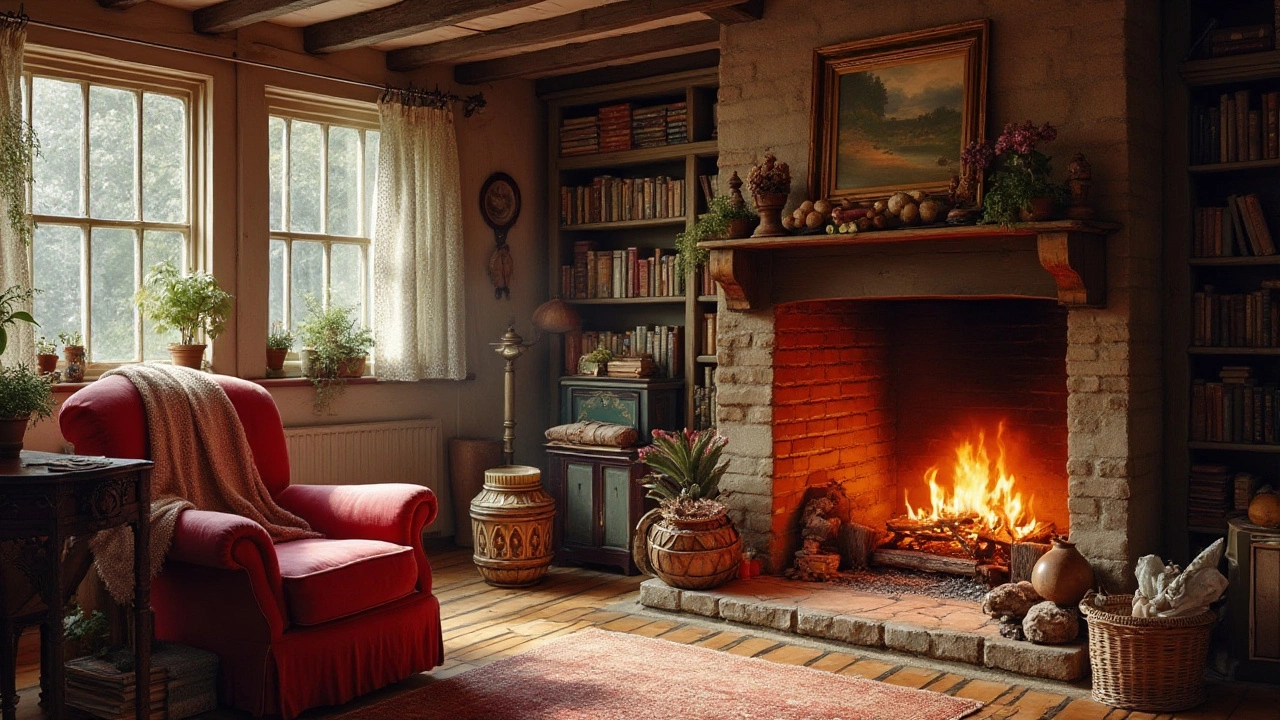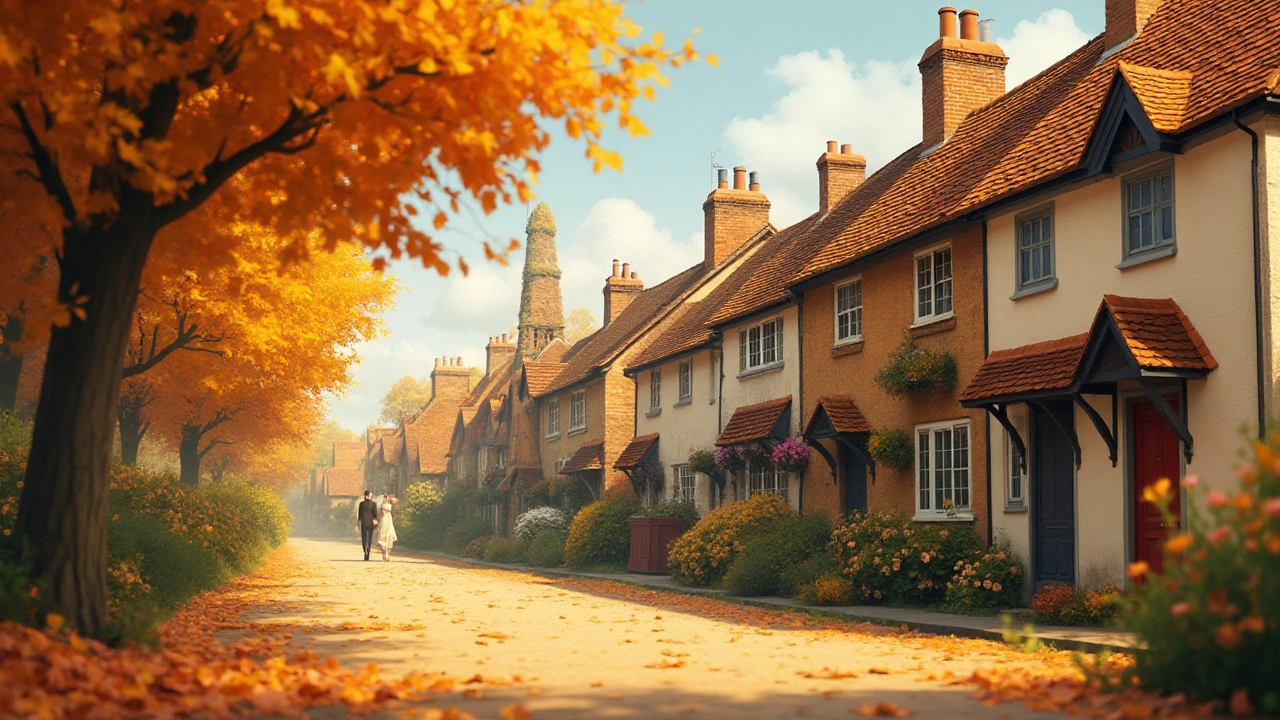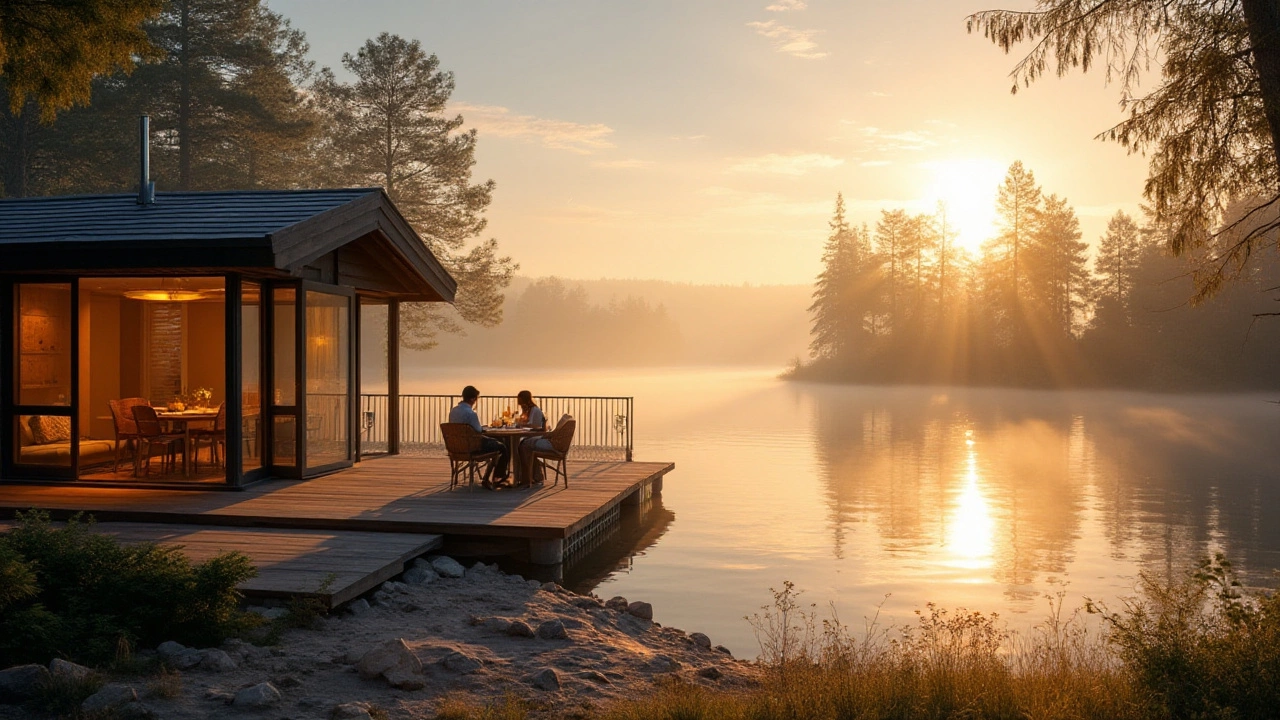Exploring the Charm and History of Cottages
 Oct, 28 2024
Oct, 28 2024
The word 'cottage' evokes images of quaint, charming little homes nestled in picturesque landscapes, but have you ever wondered where the term comes from? The journey of cottages through history is as enchanting as the abodes themselves, offering a glimpse into times when these dwellings were more than just serene getaways.
Their roots delve deep into medieval England, where the term 'cotter' referred to farm laborers who lived in modest homes provided by the landowners. Over centuries, cottages evolved in both function and form, transcending their rustic origins to become beloved symbols of simplicity and comfort.
Today, cottages hold timeless appeal, often featured as perfect vacation spots that blend modern amenities with rustic charm. Whether it's a cozy English countryside retreat or a coastal cabin, cottages have adapted to diverse needs while retaining their idyllic allure.
- Origin of the Term 'Cottage'
- Historical Significance of Cottages
- Cottages as Vacation Retreats
- Tips for Finding Last-Minute Cottage Rentals
Origin of the Term 'Cottage'
Tracing the origin of the word 'cottage' takes us on an intriguing journey back to medieval England, where language and life were entwined with the land. The term 'cottage' finds its roots in the word 'cotter,' which described a form of medieval feudal tenure. During this period, a cotter was a laborer whose dwelling and small parcel of land were granted by a lord on a manor estate. These 'cottages' were humble, modest homes, often composed of just a single room serving as both living and sleeping quarters, typically with thatched roofs adding their rustic appeal.
As society evolved through the centuries, the meaning of 'cottage' began to shift from its origin as a peasant's home. By the 18th century, the perception of cottages transformed, adapting with the times. The picturesque qualities of these quaint homes captured the imagination of poets, artists, and the burgeoning middle class, leading to the rise of the 'chocolate-box' cottage—a romantic ideal of rural living.
The Industrial Revolution marked a pivotal point as urban populations grew and sought respite from city life in the countryside. This era saw cottages become fashionable places of escape, leading to an increased demand for cottage-style homes. In contemporary times, the notion of what makes a property a cottage is subjective, but it's often used to describe a small, cozy house or vacation retreat, characterized by inviting designs that echo the simplicity of the past.
For those passionate about etymology, the evolution of the term illustrates the social changes and cultural preferences that have transpired. According to Eric Partridge, a British etymologist, the word 'cottage' is thought to have evolved further from 'cot'—a term denoting a simple shelter or farmhouse. Historians note that these shifts reflect broader societal trends concerning housing, lifestyle, and the enduring allure of rural landscapes.

Historical Significance of Cottages
The quaint image of a cottage nestled amidst lush greenery or overlooking a tranquil sea has its roots deep in history. Originating from medieval England, the first cottages housed agricultural workers known as cotters. These early dwellings were part of the feudal system, where a cotter worked the land in exchange for a modest home and a piece of land, usually enough to maintain subsistence living. These cottages were characterized by their simple construction, often using readily available materials like wood, stone, and thatch. The design was pragmatic, fostering efficiency in daily life and adaptations to the climate and local resources.
As centuries passed, cottages evolved. During the Elizabethan era, they began to take on a more endearing role, showcasing features like picturesque gardens and larger living spaces. They were not only residences but also a reflection of the growing popularity of pastoral life among the English gentry. By the time of the Industrial Revolution, the rise of the working and middle class saw cottages being built for leisure and escape from bustling urban centers, cementing them as symbols of rustic charm and simplicity.
"For the English gentry in the 18th century, a cottage symbolized a retreat to the pastoral, a return to nature," mentions architectural historian Sir James Reeve.
The architectural style of cottages varied from region to region, influenced by the local climate and available materials. In the Cotswolds, honey-colored stones were a favored choice, while coastal areas might feature maritime elements like louvered windows and shiplap siding. These regional adaptations highlight the cottage's ability to meld with its environment, enhancing its appeal and showcasing the ingenuity of local builders.
Modern times have seen a resurgence in the popularity of cottages, particularly as vacation properties. Their historical significance, coupled with their idyllic settings, make them ideal for those seeking solace and simplicity. Interestingly, a study showed that over 60% of vacationers preferred staying in a cottage over a hotel, citing a more authentic experience and privacy as key factors. This preference underscores the enduring allure of these charming dwellings, bridging the gap between past and present while remaining firmly anchored in history.

Cottages as Vacation Retreats
With their simplistic allure and serene settings, cottages have long captured the imagination of travelers seeking an escape from the hustle and bustle of everyday life. Nestled in scenic locations, like lush countryside expanses or coastal enclaves, cottages offer a unique way of immersing oneself in nature's tranquility while enjoying the comforts of a quaint abode. As vacationing trends shift towards more personalized and intimate experiences, the demand for cottage rentals has seen a significant uptick over recent years. This trend is particularly noticeable in regions with rich natural landscapes, where the charm of a rustic dwelling amplifies the experience of connection with the environment.
In today's travel landscape, cottages offer a myriad of benefits that appeal to different kinds of tourists. Families often find that cottages provide ample space and amenities to cater to all members, young and old. Couples, on the other hand, might cherish the privacy and romantic setting a secluded cottage can offer. What makes cottages compelling vacation options is their adaptability; they can be found in various sizes, styles, and locations, catering to an array of preferences and budgets. Interestingly, many historical cottages have been renovated to include modern conveniences without sacrificing their original charm, combining rustic ambiance with contemporary comfort.
One can't overlook the unique experiences that cottages bring. For nature lovers, cottages situated in remote regions offer opportunities for hikes and wildlife encounters just outside the doorstep. Meanwhile, others located near small towns introduce travelers to local culture and traditions, providing a blend of solitude and community interaction. Holidaymakers who choose to stay in cottages can enjoy an immersive experience, living temporarily like locals while exploring the beauty of their surroundings. The experience is enriched by unique features like fireplaces, cozy kitchens, or private gardens, offering a home-away-from-home feel that conventional accommodations sometimes lack. Choosing the right place often involves careful consideration of one's needs and expectations, but with the plethora of options available today, finding the ideal cottage retreat has become easier than ever.
| Region | Percentage of Cottage Rentals |
|---|---|
| UK Countryside | 35% |
| US Coastal Areas | 25% |
| Canadian Lakesides | 40% |
This table highlights regions where cottages are a popular choice, showing their geographical appeal and popularity among vacationers. As more individuals seek unique experiences closer to nature, cottages as vacation retreats continue to gain popularity, fulfilling a timeless yearning for simplicity, closeness to nature, and a slow-paced, intimate life.

Tips for Finding Last-Minute Cottage Rentals
When it comes to planning a spontaneous getaway, finding a charming cottage on short notice can be both exciting and daunting. Whether you're yearning for a cozy weekend in the countryside or a peaceful retreat by the sea, the task of securing a lovely hideaway without prior bookings might seem challenging. However, with a little creativity and a keen eye for detail, the perfect cottage could be just a few clicks away.
First and foremost, flexibility is the name of the game. Those willing to travel during off-peak times or mid-week can often snag fantastic deals. This is when many cottage owners might have cancellations or unplanned availability, allowing you to enjoy the perks of a breathtaking location without the crowd or the premium prices. Checking out multiple online rental platforms can greatly increase your chances, as some specialize in listing last-minute deals. Websites like Airbnb or Booking.com, often have dedicated sections or filters for late availability that highlight these gems.
Subscribing to alerts and newsletters from popular accommodation websites is another smart move. Many platforms offer subscription services that notify you when cottages become available at discounted rates. You can personalize these alerts based on location, amenities, and guest reviews, ensuring the notifications you receive are tailored to your preferences. While the charm of browsing through unexpected results is undeniable, zoning in on verified listings can prevent any potential disappointment upon arrival.
Reaching out directly to owners can also pay off. Sometimes owners are more than happy to accommodate last-minute travelers, especially if they want to fill a vacancy. Establishing a direct line of communication not only provides an opportunity for potential negotiation but can also result in a more personable experience, as many owners are eager to share insider tips about local attractions and hidden spots that tourists often overlook.
According to Travel Market Report, last-minute bookings made in 2023 accounted for nearly 31% of total vacation rentals. This reflects an upward trend where flexibility is becoming an increasingly desired trait among vacationers. Additionally, traveling during shoulder seasons, the periods just before or after peak seasons, can lead to discovering lesser-known but no less enchanting locations. During these times, you might find a quaint cottage with all amenities at a fraction of the peak-season cost.
If you're technologically inclined, leveraging mobile apps designed for last-minute travel can be a game-changer. Apps like HotelTonight, which originally focused on hotel reservations, are branching out to include alternative accommodations like cottages and rural retreats. These tools often come with user reviews, ratings, and insider photos, helping you select the ideal spot without the usual stress.
Finally, being thorough in checking photos, reviews, and amenity lists is essential. It's easy to be swayed by a stunning sunset view or a quaint gabled roof, but ensuring that the cottage has the essentials you desire will guarantee a relaxing stay. Whether it's a functional kitchen for cooking local produce or a fireplace for cozy evening relaxation, clear communication with the host can ensure all your needs are met.
So, don't be deterred from your spontaneous adventure by a late booking search. With the right tools and mindset, the perfect cottage is waiting for you to uncover its secrets.